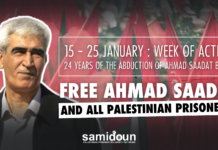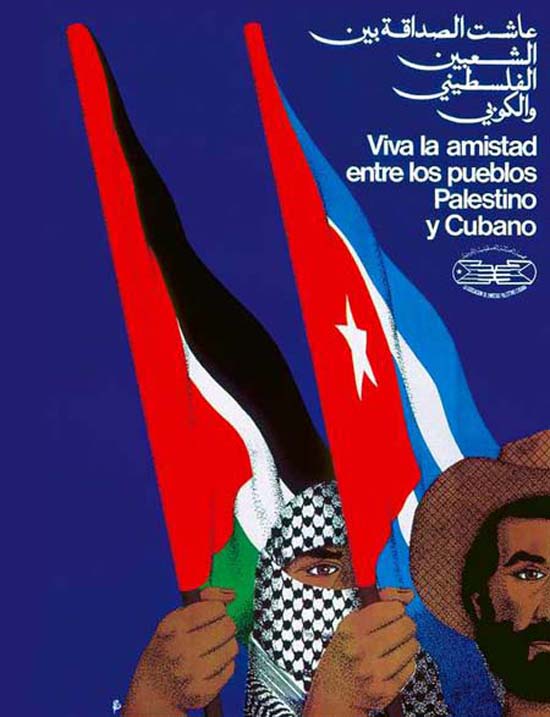
On the 71st anniversary of the launch of the great Cuban revolution, the storming of the Moncada Barracks on 26 July 1953, Samidoun Palestinian Prisoner Solidarity Network salutes the Cuban people, their continuing revolution, and the ongoing alliance between the people of Cuba and of Palestine to confront Zionism, imperialism and reaction.
In 1953, the Cuban revolutionaries launched their attack on the Moncada Barracks, one year after Cuban military general Fulgencio Batista, dedicated to the interests of U.S. imperialism, seized power on the island, banning trade unions and socialist groups, cutting ties with the Soviet Union and fostering even closer ties with the United States. Cuban revolutionaries, including Fidel Castro and Raúl Castro, launched their attack on that day, and while they were unable to defeat the US-backed Cuban regime on that day, they created the 26th of July Movement, which would grow to encompass Ernesto Che Guevara, Camilo Cienfuegos and many more revolutionaries that would achieve victory in 1959.
Before the 26th July operation, Fidel Castro said: “In a few hours you will be victorious or defeated, but regardless of the outcome – listen well, friends – this Movement will triumph. If you win tomorrow, the aspirations of Martí will be fulfilled sooner. If we fail, our action will nevertheless set an example for the Cuban people, and from the people will arise fresh new men willing to die for Cuba. They will pick up our banner and move forward … The people will back us in Oriente and in the whole island. As in ’68 and ’92, here in Oriente we will give the first cry of Liberty or Death!”
Fidel Castro himself was held as a political prisoner for two years before he joined his fellow revolutionaries in the Sierra Maestra, to build the revolutionary movement that would expel US imperialism from Cuba and usher in a new era for Latin America, on the front lines of confrontation of imperialism in the region and around the world. Indeed, his speech, “History Will Absolve Me,” made before the court that sentenced him, became the manifesto of the 26th of July Movement. The Cuban revolution embraced revolutionary internationalism, supporting movements around the world, fighting for liberation in Africa, Asia and Latin America, and building ties with struggling movements in the heart of the imperial core. The Cuban revolutionary cause unified with the Black Liberation movement in the United States, an alliance that remains in place to the present day.
Havana, Cuba, launched the Tricontinental Conference in 1966, which led to the development of OSPAAAL (Organization of Solidarity with the People of Asia, Africa and Latin America), whose posters for the Palestinian revolution — and other anti-imperialist struggles — have remained indelible symbols of the common cause of justice.
Through this revolutionary struggle, the deep alliance between the Cuban and Palestinian revolutions was born. Cuba has consistently supported the Palestinian liberation struggle on multiple levels, and the Palestinian and Cuban flags have risen as twin banners of liberation everywhere in the world, reflecting the common confrontation of imperialism, Zionism and their reactionary agents everywhere. In Palestine, the Cuban revolution has always had particular resonance. Che Guevara visited Gaza in 1959, shortly after the victory of the revolution, as part of the Non-Aligned Movement and the alliance of anti-colonial forces. According to Palestinian scholar Salman Abu Sitta, Guevara urged the Palestinians to develop their training camps, weapons production and people’s mobilization centres. Today, in 2024, viewing the strength of the resistance, their capacity for weapons production amid siege and genocide, and the steadfast popular cradle of the people, it is clear that the Palestinian revolutionary movement has fully implemented such proposals beyond what could have been imagined in 1959.

The leader of the armed struggle in Gaza in the early 1970s was Mohammed al-Aswad of the Popular Front for the Liberation of Palestine — “Guevara Gaza.” Indeed, Moshe Dayan once said, “We run Gaza by day, and Guevara and his comrades run it at night.” Che Guevara continues to be a unifying symbol not only of the Palestinian Left but of the armed liberation struggle across political lines. Today, as Yahya Sinwar, Mohammed Deif, and all of the heroic fighters of the Al-Qassam Brigades, Saraya al-Quds, the Abu Ali Mustafa Brigades, and all of the armed forces of the Palestinian resistance lead an unprecedented battle from Gaza, Che’s famous call, “Homeland or death!” echoes in their bravery, faith and love for the people and land of Palestine.
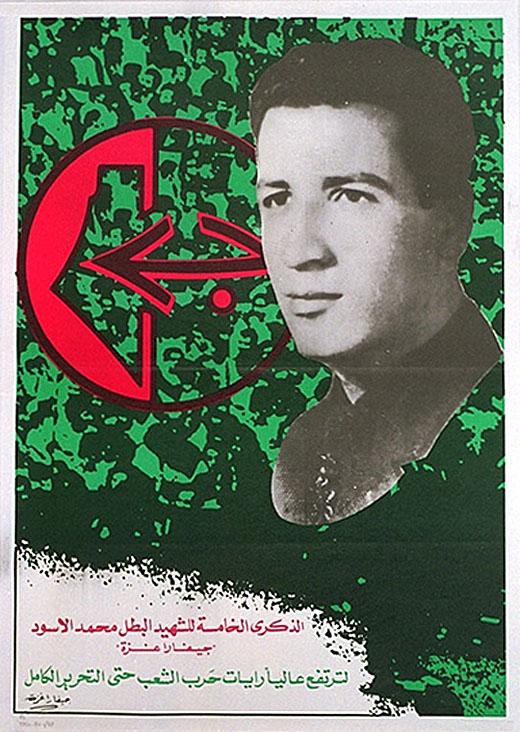
Today, as the Palestinian Resistance leads the liberation struggle in Gaza, aligned with all of the forces of the resistance in the region and the world, it is the fighters in Palestine, in Yemen, in Lebanon, in Iraq, who are ushering in another new era of the defeat of imperialism. Al-Aqsa Flood has marked the turning point for a new generation of revolutionaries, toward a global intifada and a rebirth of the Palestinian and international revolutionary movement, a great flood that will wash away US and European imperialist hegemony in the Arab and Iranian region. This anniversary is even more meaningful as the Palestinian people in Gaza resist genocide and lead the battle for the liberation of Palestine from the river to the sea and the total defeat of Zionism and imperialism.
It follows shortly on the anniversary of the founding of the Sandinista National Liberation Front in Nicaragua on 19 July 1961, and the victorious Nicaraguan revolution 18 years later in 1979, as Nicaragua continues to confront US imperialism, and this year, in 2024, we mark the anniversary of the Cuban Revolution as Bolivarian Venezuela prepares for presidential elections on 28 July, facing down US-sponsored sanctions, coercive economic measures, and imperialist intervention aimed to undermine and impose regime change upon the Bolivarian Revolution. Venezuela is holding fast to its sovereignty and its internationalist commitments, including to Palestinian liberation, to determine its own future as part of the global camp of resistance.
Cuba is perhaps one of the paradigmatic examples of defiance and steadfastness in the face of US sanctions, alongside Haiti, Iran, and other nations that have been subjected to imperialist economic and military coercion for decades on end. The US has attempted to impose regime change on Cuba and destroy the Cuban revolution through sanctions, blockades and policies that are designed to starve and impoverish the Cuban people. The blockade on Gaza and the siege on Palestine — and on the Palestinian people everywhere — is akin to that imposed on Cuba, and both represent a form of genocide, a war against the population as a whole, and an attempt to confiscate the wealth of the people of the Global South through fraud and theft, as well-documented by the International People’s Tribunal on US Imperialism.
Cuba is also currently labeled as a “state sponsor of terrorism” by the United States, being designated in a clear attempt to impose political, economic and military pressure on Cuba to give up their sovereign and socialist path of development. This is reminiscent of the case of Palestine, where Palestinian resistance organizations, including Hamas, the Islamic Resistance Movement; the Palestinian Islamic Jihad Movement; the Popular Front for the Liberation of Palestine; Hezbollah, and many other resistance forces, are labeled as “terrorist organizations” by the US, Britain, European Union and Canada in an attempt to undermine the Palestinian people’s justified and legitimate struggle by all means, including and especially armed struggle, to achieve their liberation. “Terrorist” designations aim to divide the peoples of the world from forging alliances, criminalize global solidarity and separate populations in exile and diaspora from their homelands. In Cuba as in Palestine, Lebanon, Yemen and the Philippines, such designations will never succeed in undermining the people’s struggle for justice, dignity and true freedom.
On 26 July 2024, this monumental anniversary, Samidoun Palestinian Prisoner Solidarity Network extends its salutes and solidarity to the people and leadership of Cuba and emphasizes our confidence in the continued success, development and strength of the Cuban revolution. We also salute and join in the global movement to end the blockade, siege and sanctions on Cuba.
We are confident that the longtime alliance and deep solidarity of the Palestinian and Cuban revolutionary movements and peoples will continue to flourish and development, and that all of the imperialist schemes and targeting of Cuba will fail, breaking the siege and blockade and removing Cuba from the “terror list.”
Further, we look upon this anniversary as a promise for the future of Palestine as well, of the inevitable victory of the people’s struggle for liberation, and the triumph of the Palestinian resistance over Zionism, imperialism and all reactionary agents. Victory is coming, from the tunnels of Gaza, to the camps of resistance in the West Bank, to the Palestinian people fighting for return in exile and diaspora, to the valiant struggle in occupied Palestine ’48, led by the heroic resistance. As Fidel Castro said in 1953, history will indeed absolve us of all of the lies and propaganda campaigns of Zionism and imperialism, and uphold the heroic fighters of Palestine as the defenders of humanity, heralding a new era for all.
Victory for Cuba, victory for Palestine!
Down with imperialism!
From the river to the sea, Palestine will be free!
Just a few of the Cuban posters for Palestine produced by OSPAAAL:
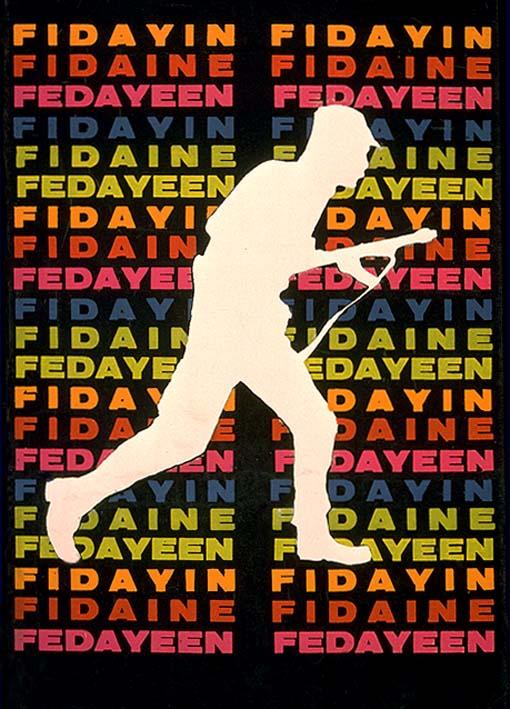
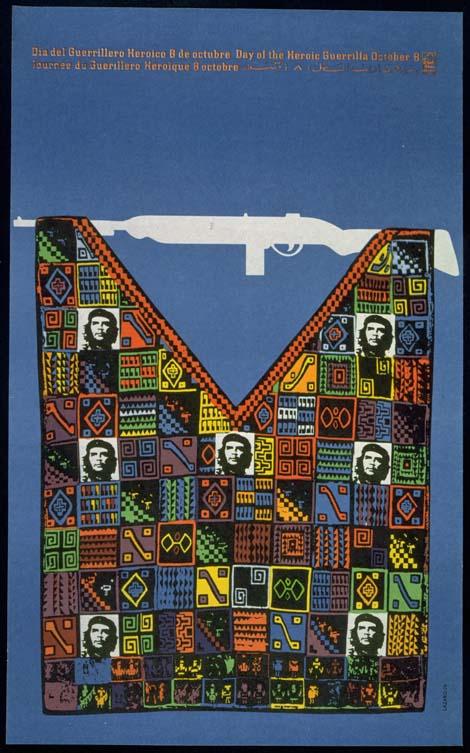
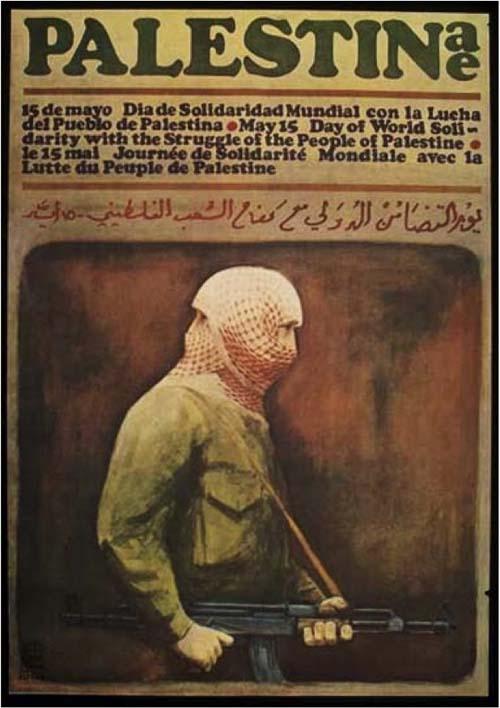
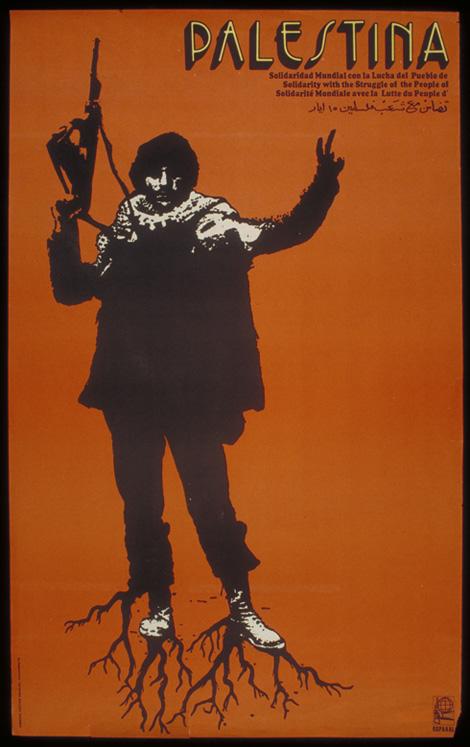
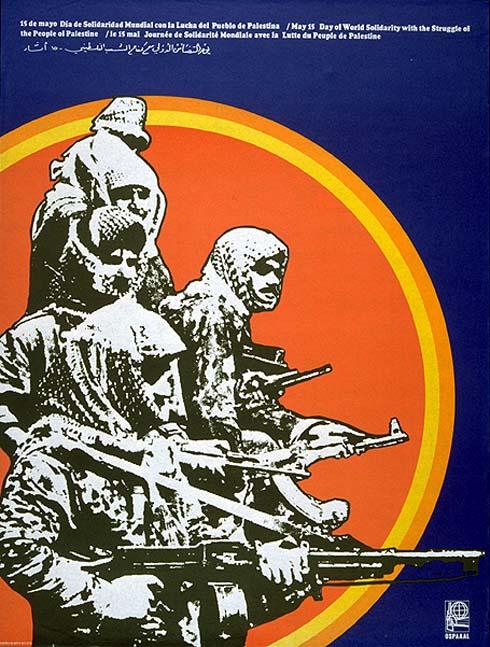
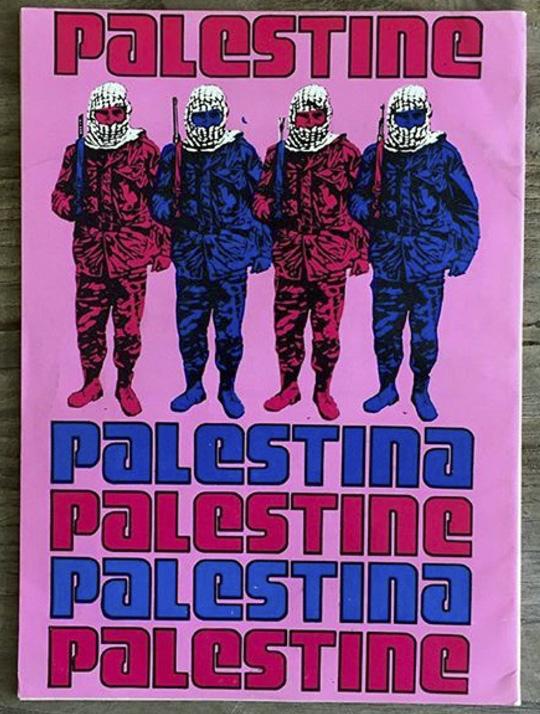
Discover more from Samidoun: Palestinian Prisoner Solidarity Network
Subscribe to get the latest posts sent to your email.



